Dreaming of visiting Israel but not sure when's the time for that? Should you come during the summer or winter? Are some months better than others? Any special holidays or festivals to take into account? As a fellow traveler and a local Israeli, I have answers for you. Sharing from my experience as well as for the extensive research that I've done for this post.
 First, the short answer: The best times to visit Israel are:
First, the short answer: The best times to visit Israel are:
- During springtime - between March and late April - or,
- During fall - between October and late November
You should check the dates of Jewish holidays during the year of your planned visit to try and avoid them (unless you're here to celebrate with us!)
But of course, there are more caveats. Quite a lot of them. Now, if you're visiting Israel often and are likely to return, then you're probably less concerned with timing. Whatever you'll miss out during one visit, you can catch up on in the next one. However, if visiting the Holy Land is a "Once in a lifetime" bucket list item for you, paying attention to the following considerations will help make sure you make the most out of your visit.
Keep reading, it's going to be an interesting post! Or use the table of contents to jump to a specific topic or month.
How to find the best time for visiting Israel
The best time for traveling differs from one person to another. Your best time for visiting Israel will depend on -
- Your budget.
- The length of your trip.
- What you want to do during your trip.
- When you can take time off work.
for most people, one of the most important aspects of choosing the timing is the weather patterns. I'm going to provide you with an in-depth analysis of Israeli weather in a minute, to help you fine-tune your options, but let me say at the start -
The weather should not have a huge effect on your trip to Israel.
Israel has a fantastic mild Mediterranean climate. It rarely gets very cold or very hot. Yes, summers can be hot, but the Mediterranean sea usually offers a cooling breeze. There are no hurricanes, tornadoes, floods, wildfires, blizzards or even major lightning storms. Whew! And if you're worried about our "non-weather dangers", please don't. Read my guide: Is it safe to travel to Israel for more information.
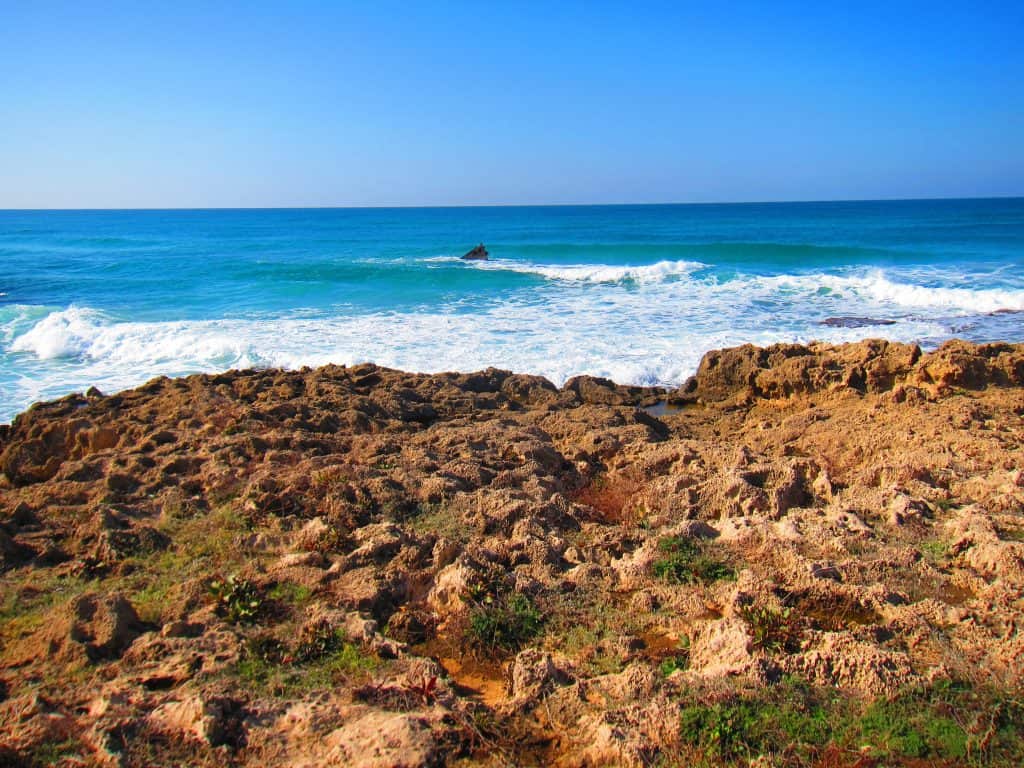
Next, there are the holidays and festivals. I'll cover all of that as well but of course, the choice is yours. Some people love coming over to take part in such events, while others may want to change their travel plans to avoid them.
In terms of budget, the high-season in Israel is July-August, with local peaks around the holidays in September-October and again in April (exact dates vary though, it's not for the entire months).
And now, let's start digging into the details.
Seasons and weather in Israel
With most countries, people are worried about winter weather, especially snow and blizzards. Fortunately, in Israel, these are rarely an issue (and even more rarely do they affect the entire country).
The Seasons in Israel
In a nutshell, Israel has one long summer season roughly lasting from mid-April to mid-October. Including both of these months. So, that's roughly seven months of summerly weather patterns with potential heat waves and low-to-no chances of rain.
There is some variation within this extended summer. From April to October, and - to a lesser degree - May and September, the weather can get generally cooler and you could catch the odd shower. Whereas during June, July, and August, you can count on it being hot and with no rain. I was about to say "dry" but it can get humid. More on that in a minute.
Our fall season is short and generally covers mid-October and November. Don't expect any stunning foliage colors (wrong part of the globe for that). Just a generally dull brown color in most places, as plants absorb the water from the first rains. Some green patches begin to appear throughout November.
Springtime is equally short and transient. It's basically the time when the rains become infrequent - approx. 4-5 days of rain on average in April - and the weather becomes warm yet not really hot yet.
Winter in Israel
December, January, and February are the winter months. In most of the country, it's a fairly mild winter. You can expect 15-20 rainy days every month during winter time in Israel. Most of them will only have light rain though, which most travelers can handle. Occasionally, there may be a longer and rougher patch of rainy days which could cause traffic issues but no real floodings.
Temperatures vary by region.
In the coastal areas - where Tel Aviv and Haifa are, the average high during winter months is around 64 Fahrenheit (18 Celsius). At night time, the average low is 47 degrees Fahrenheit (8 Celsius). Snow is almost unheard of in these areas and it's very rare to get a drop in temperature to anywhere near freezing. Most people get along fine with a tee-shirt and a light jacket in these areas (you can read more about that in my guide about what to wear when visiting Israel).
In Jerusalem and other mountain areas, it can get colder, but not dramatically so. The average high during daytime there is in the mid-fifties and it can go down to an average low of 40 Fahrenheit or so (about 4 degrees Celsius). These areas can get snow but that's not a regular feature of the season. Some years they get none at all, other years, they get 3-4 days of snow which sticks around for a few days before melting away.
Summer in Israel
The long summer season is quite hot. Average daytime temperatures range in the 80's and sometimes 90's (30-37 in Celsius) with occasional heat waves pushing the numbers even higher.
Mountain areas have only slightly lower temperatures but they do enjoy a more dry climate, making the weather overall far more tolerable. The coastal areas - especially Tel Aviv - are notorious for sticky, hot and humid summer days. It's not as bad as in the tropics, but we're not too keen about it.
The good news is that evening/night time is great to hang around the beaches and enjoy the breeze. The even better news is that almost everywhere in Israel is fully air-conditioned.
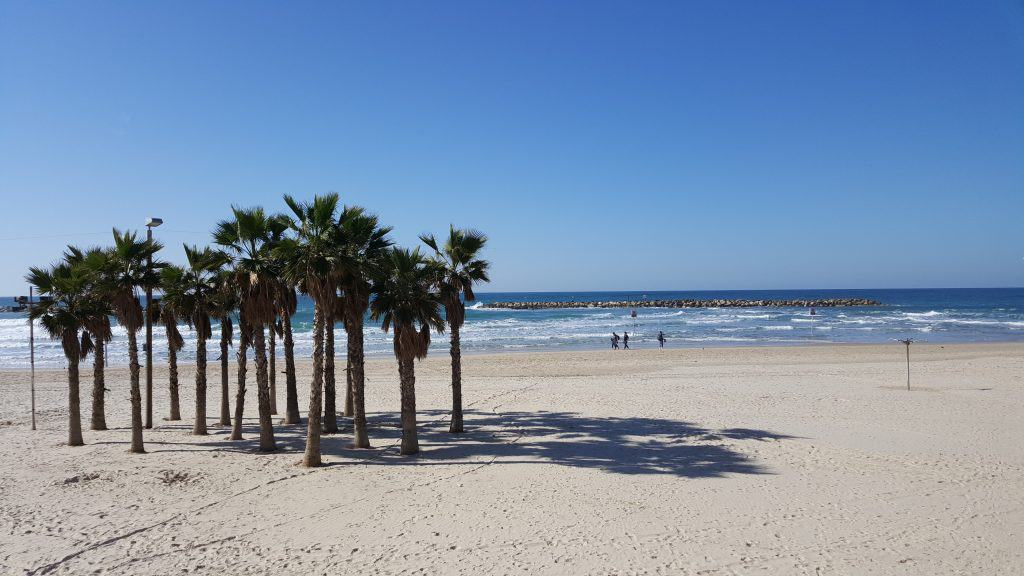
When's the best time for going to the beach in Israel?
Speaking of the beach.
One of the highlights of visiting Israel would be spending a day at the beaches of the Mediterranean Sea. You could do that anywhere between scenic Ashkelon in the south and even more scenic Akko in the north (if you're not familiar with Akko, check out my guide here).
Water temperature goes down in winter time and gets to 64 Fahrenheit (or around 18 degrees Celsius). Now, that may seem ok to those of you who are used to bathing in the Atlantic or Pacific ocean but Israelis consider this to be very cold. You can go to the beach but there will be no lifeguard on duty and you'll probably the only one in the water.
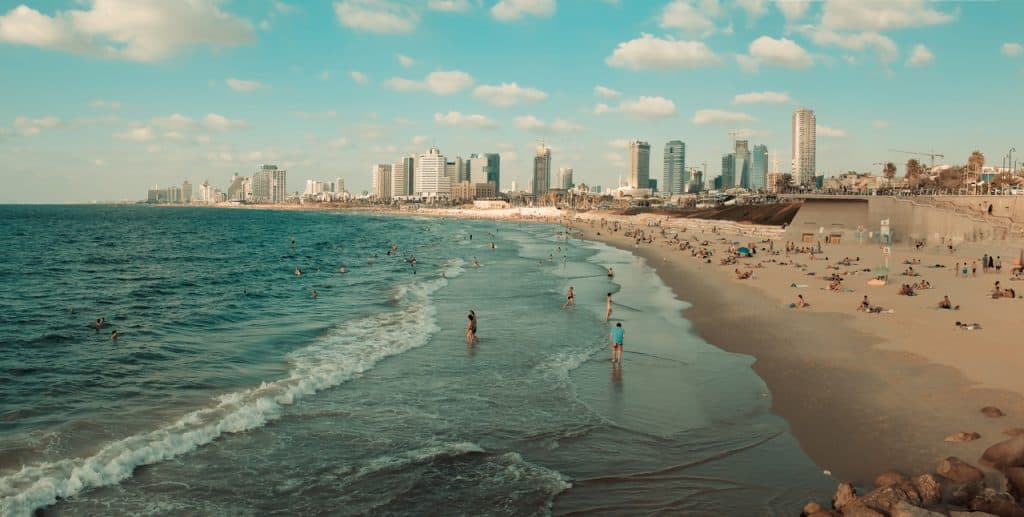
The water gradually heats up during springtime and reaches an ok 75 Fahrenheit region in May (about 25 Celsius) and the very pleasant 85-90 Fahrenheit range during July. The good news is that these sweet temperatures stick around until the end of October! So you can actually find days in October when the sea water is warmer than the outside air.
In short, if you want to hit the beach while visiting Israel, shoot for July-October for the best water temperatures. And if you're not too sensitive, May, June and November will be ok for you too.
But wait, there's the Jellyfish too.
Over the past decades, Jellyfish invaded the shores of the Mediterranean. Large swarms frequent the beaches during July and August. Which really sucks because that's prime beach season. There are actually websites where you can find the jellyfish forecast to find out where the swarms are, so don't avoid the beach just because of these marine critters. Plus, they're not that dangerous, just irritating.
Holidays in Israel and how they can affect your travel
Israel is the home - and to some extent birthplace - of the three large monotheistic religions: Judaism, Islam, and Christianity. Which means a LOT of holidays over here.
How much these holidays will affect your trip depends on where exactly you're going to travel. Jewish areas are affected by the Jewish holidays whereas Arab areas are affected either by Muslim or Christian holidays, or both (depending on the local inhabitants' affiliations).
Since Israel is the Jewish State and 80% of the population is Jewish, it's the Jewish holidays that need to concern you the most. During these holidays - as well as on Shabbat - there will be no public transportation available and many establishments will be closed (though not all).
To help you figure out exactly how these holidays can affect your trip to Israel, I wrote an extensive post about the topic. You have the full details here: Holidays in Israel and How They Can Affect Your Travel Plans.
For the purposes of this post, the main times of the year when these matters are -
- September-October - Rosh Hashana, Yom Kippur, and Sukkot cover a three-week period sometimes along these two months.
- Late March-April - Passover is a three-week-long school holiday.
If you plan on visiting Israel anytime during September, October, March or April, do yourself a favor and read the post I just linked to.
How the days of the week could affect the dates of your flight?
Between Friday afternoon and Saturday evening is the Jewish "Shabbat". While secular people drive around freely, religious folks avoid the use of cars (and any other electric-powered or engine-powered devices).
Here's something really important that most travelers to Israel don't know about: There is no public transportation in Israel during Shabbat.
Buses and trains need to reach their final destination approximately one hour before the Shabbat. Service resumes gradually, beginning about an hour after the Shabbat ends. The exact hours vary every week, depending on sunset times.
So, what do you do?
Assuming you don't have a car, you're going to have to rely on taxis. Some taxis run what is locally known as "Sherut" taxi. That's a taxi that takes up a main bus route, collecting and dropping passengers along bus stops. They charge the same fee as a bus would but you could find yourself cramped in the back seat with other passengers on both sides. Plus, they're not always reliable.
You could call a regular taxi but that's expensive - and even more so during Shabbat time. If your flight lands or takes off during Shabbat, you may have no other choice. Taxis are available at the airport, but you're going to pay the higher weekend fees.
A third option would be to rent a car at the airport. All big rental companies allow you to drop your car back at the airport on Shabbat. Some will let you rent it out during that time as well but you should make the reservations in advance. Depending on where you're headed, it may end up being cheaper than getting that taxi.
Read more: Should you rent a car while visiting Israel?
Or you could just try avoiding coming into Israel or leaving it during Shabbat. In that case, you'll have trains and buses going to and from the airport. That works too
Events & Festivals in Israel and how they work into your travel plans
There are several large festivals held in Israel every year (and a bunch of smaller ones). Many people prefer to visit the festivals and so might you. Just know that these areas will be more crowded during these times, and accommodation rates will probably be higher too.
Here's a quick list of the main festivals -
The Israel Festival
Held in Jerusalem in May/June this the largest art festival in the country. You can go to shows and movies, visit galleries and see street performers.
Visit the website for more details
Karmiel Dance Festival
A favorite with many Israelis, you can find dozens of dance shows to see (and even participate in!) during the four days of the Karmiel Dance Festival in July. It's a great opportunity to see some authentic Israeli Folk Dancing (yes, that's a "thing"!) and enjoy the Galilee, where the town of Karmiel is located.
Visit the website for more details
White Night Tel Aviv
Tel Aviv is known as "The City That Never Stops", with active nightlife throughout the year. There's one night every year where the City officially invites everyone to participate in an all-nighter, with shops, stores, restaurants open all night long, and the city offering a range of parties, street shows, and other fun things. Held during late June or early July, it's a great way to experience the Tel Aviv vibe in summer.
View this post on Instagram
Exact dates and events vary and are usually finalized during the months leading to the event. If you're thinking of visiting Israel during spring or summertime, Google "Tel Aviv White Night" or "Tel Aviv Layla Lavan" to see what's in store for that year.
Gay Pride
Summertime is also when the Gay Pride Parade events take place in Israel. The main even is - naturally - in Tel Aviv. It's a HUGE deal with people from all over the world coming especially to join in the Pride Parade. Many Israelis join in to show their support of the gay community which is such an essential part of what Tel Aviv is.
There are gay pride parades in other parts of the country. If you want to show your support and help fight for gay rights, you may want to consider them as well. They are less "showy" and are more about rights than fun. The Tel Aviv parade is the best if you're just looking to celebrate.
Jerusalem Beer Festival
For Jerusalem summer fun, try the annual Beer Festival. Israel isn't much of a beer nation but that seems to be changing gradually and this relatively new festival reflects the new trend.
View this post on Instagram
Check out the details on their website
Sports events
There are always those too! From marathons to cycling events, triathlons and rowing competitions. There's always something going on somewhere. If you're interested in these, you'll know where to find them. If you're not, just keep an eye out for them, especially in big cities.
Come during the Off Season for the cheapest travel rates
As you can see, the weather in Israel is really fine throughout the year. Most people travel during July and August, just because that's when the school holidays are. If you can, try to shoot for off-seaosn dates and you'll be more likely to find cheaper flights and even cheaper accommodations.
What's the best time to visit...?
Do you have a specific destination in mind? Are you coming to see Jerusalem, or maybe visiting Tel Aviv on business? Or is a spa in the Dead Sea the focal point of your trip?
I get these questions from time to time, so decided to try and cover them here.
What's the best time to visit Jerusalem?
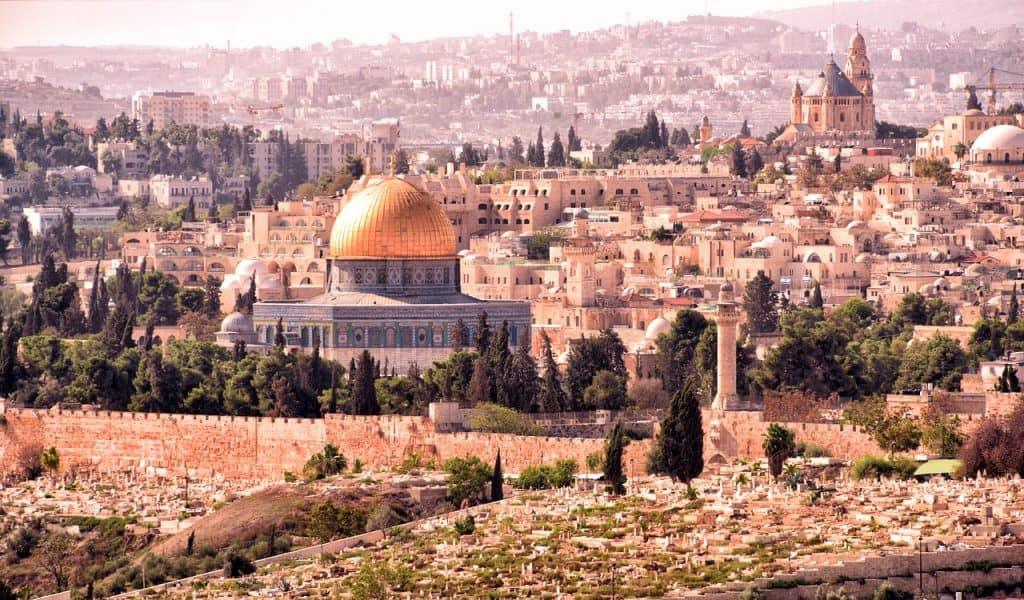
April-June and then September-November is when you'll get the best weather in Jerusalem. July and August can get very hot and wintertime tends to be nippy, sometimes dropping below the freezing point.
December is the best time of year for visiting the Christian sites. Everything will be decorated and if you're here for the holiday, you can participate in a mass in one of the churches of the Old City of Jerusalem.
June is great if you want to catch The Israel Festival for an extended dose of art and shows.
What's the best time to visit Tel Aviv?
Anytime between October and May, you'll get the best possible weather. Winters are mild but you may want to keep an umbrella with you.
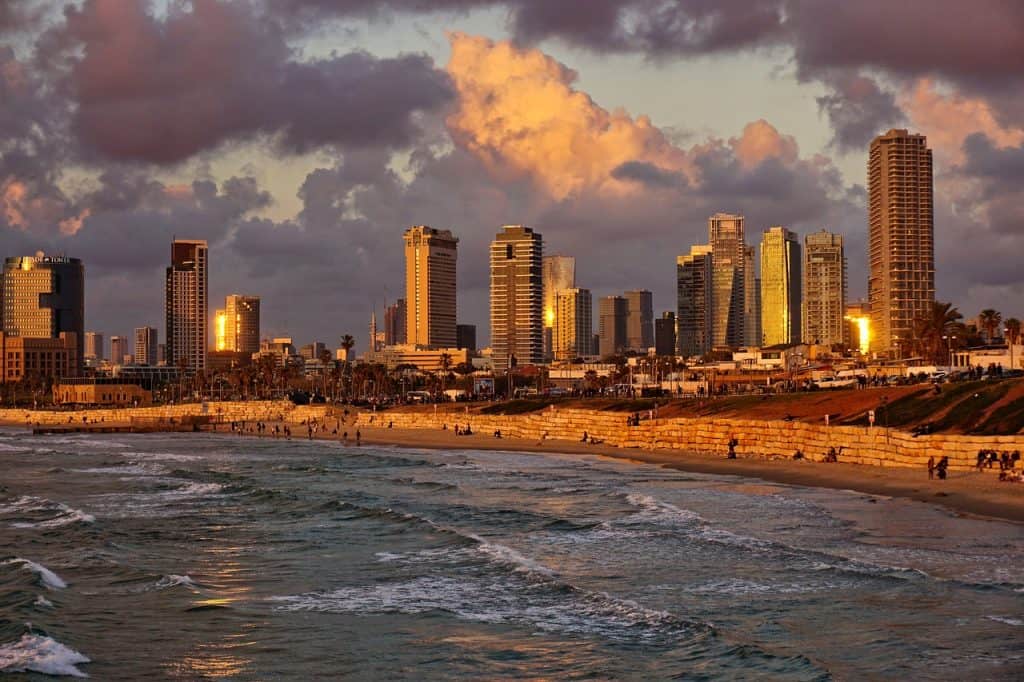
For hitting the beach, try August, September or October. That's when the sea water is warmest and if you come after mid-August, you're also visiting in the off-season to enjoy cheaper rates. The weather will be fantastic during October too, making it the idea time to visit Tel Aviv, in my opinion.
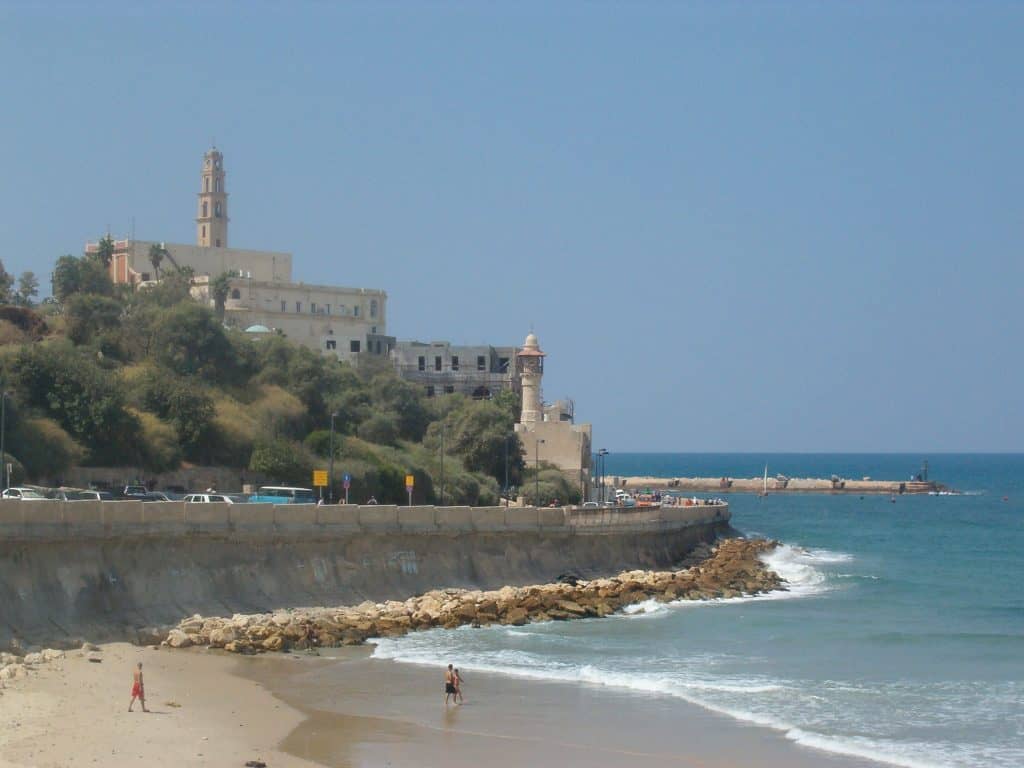
However, if you want to get a taste of the crazy nightlife and local gay culture, June-July is the right time for you (just check on the exact dates for the annual Gay Parade and White Night events).
What's the best time to visit the Galilee?
Visiting the Lower or Upper Galilee, you're probably coming to see Tiberias, Nazareth and the Sea of Galilee. There are many wonderful nature reserves and National Parks there as well, so try to include them as well.
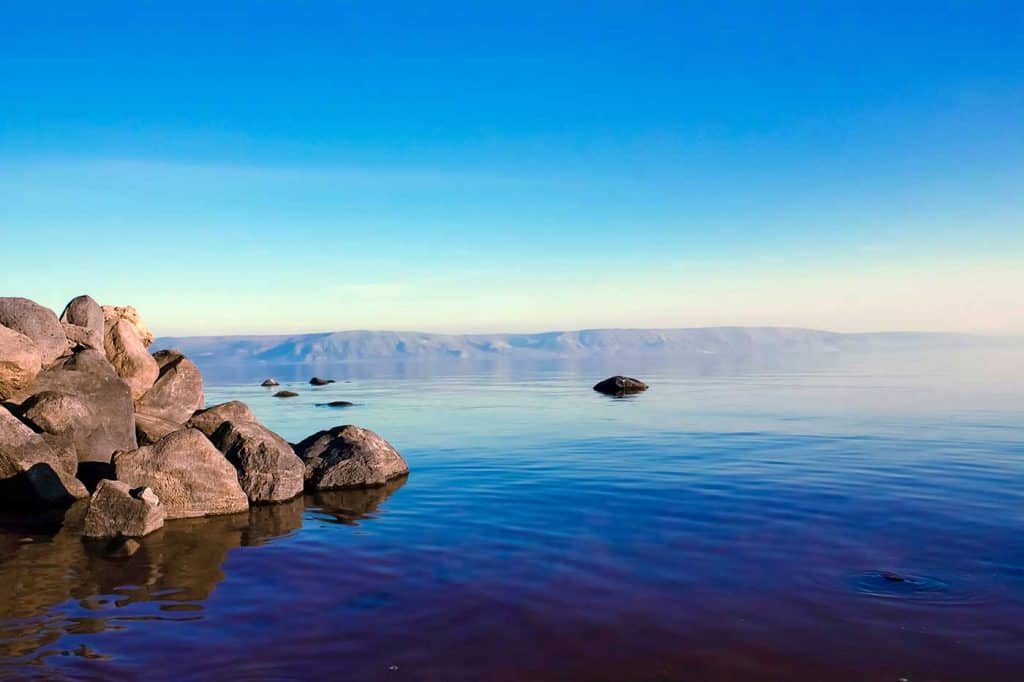
The best time of year to see the Galilee is definitely during springtime. Shoot for late February to April to see the most flowers and greenery all around you. If you want to bathe in the Jordan River or the Sea of Galilee, then later in the season would be better. July-October is when the water offers the best temperature.
And if you're here on a pilgrimage, Nazareth is definitely prettiest in December, as Christmas lights and decorations are everywhere.
What's the best time to visit the Dead Sea?
The Dead Sea is a superb winter destination. It's way too hot to visit during summertime (though many people do) but wonderfully sunny, dry and warm in winter. You could get some rain then - but not too much. Just watch out for flash floods if you're hiking the area during that time of year.
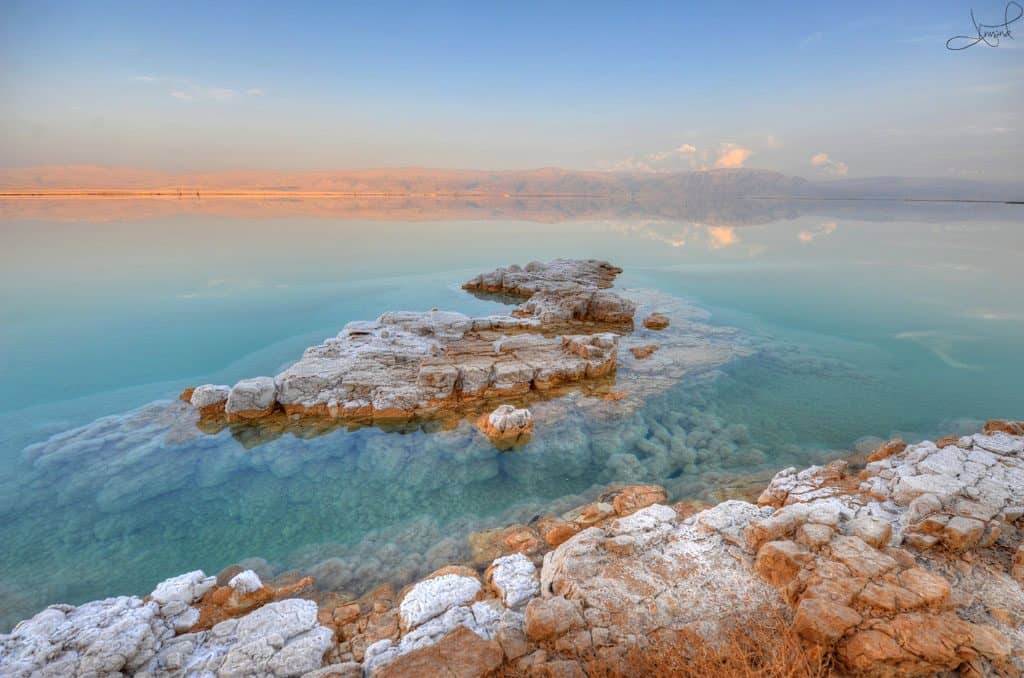
Read more about the best time to visit and other topics in my Ultimate Guide to Visiting the Dead Sea.
What's the best time to visit Eilat?
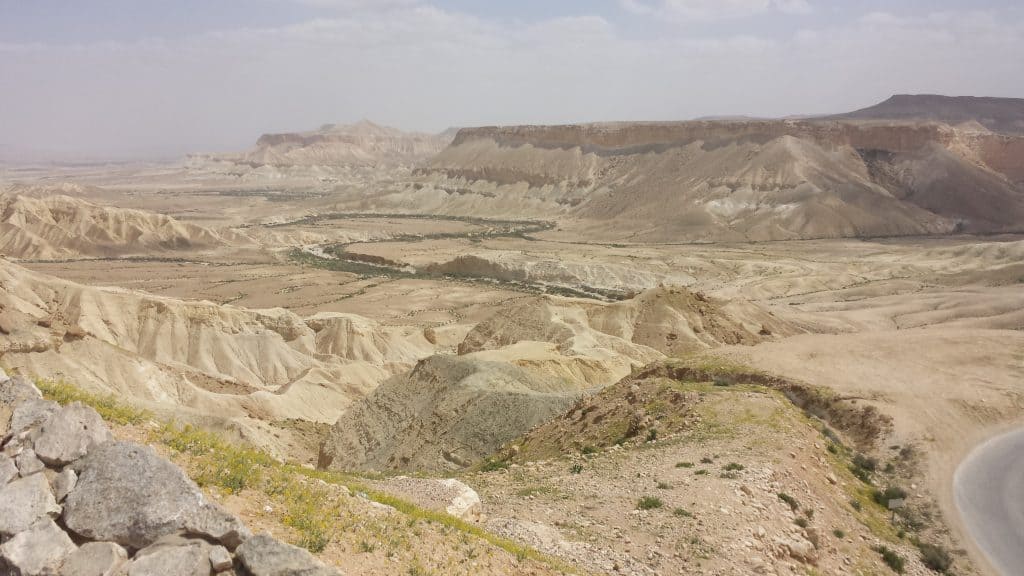
At the very southern tip of Israel, you'll find the desert city of Eilat. Most people either visit Eilat or the rest of the country, as there's a distance of 4-5 hours of desert driving time in the middle. It's actually a fantastic road trip if you have a car, filled with camels and awesome desert attractions. I should blog about that too sometime.
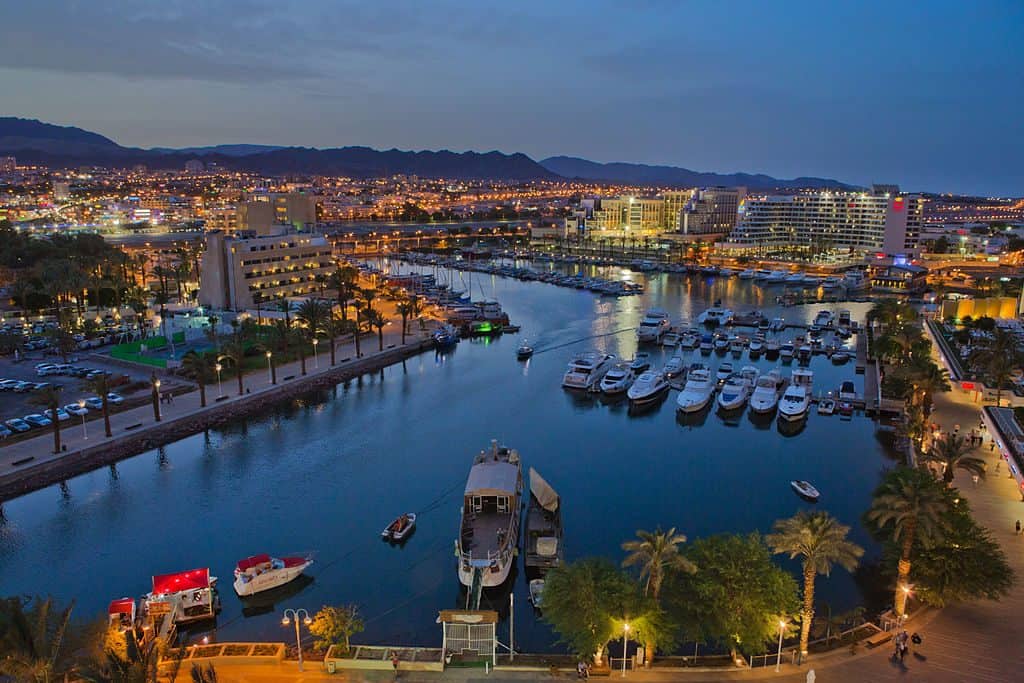
Anyway, Eilat is super hot during summertime and just regularly hot during winter time. It's almost always dry. So much so, that some tour companies used to offer a "sun guarantee" when selling packages to Eilat. The Red Sea is great for diving in and is relatively cool even during summer, so if you're going there to snorkel and dive, summer is actually a great time. Otherwise, October-May will be cooler and nicer.
Have fun traveling in Israel!
Whenever you come here, I'm sure you'll have TONS of fun! I hope this guide helps you find the very best timing for your dream Israeli holiday.
If you have a favorite time for visiting, leave a comment to let everyone know, and of course, feel free to ask me anything about your trip to Israel!
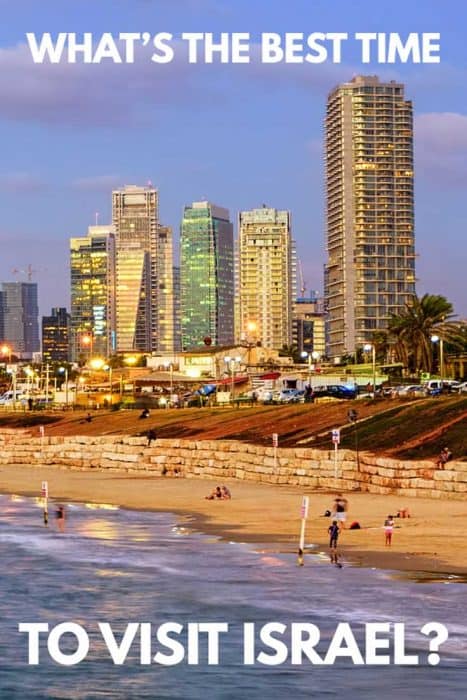


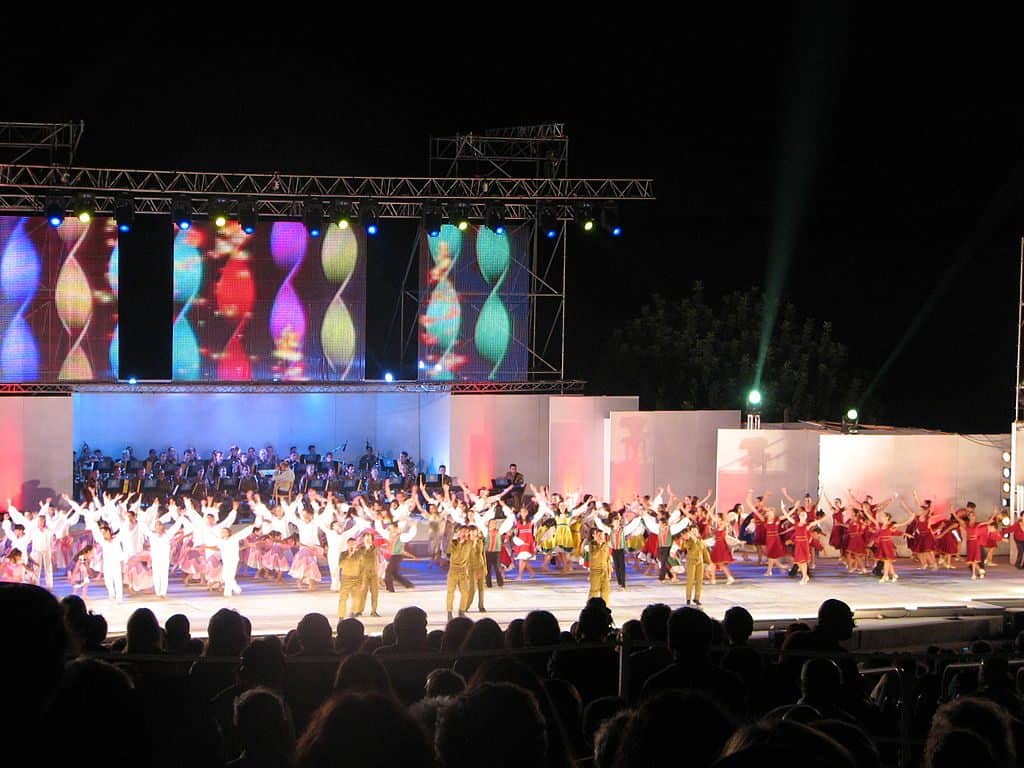
We plan to visit end of July and 3 weeks in August. My grandkids and there parents will be there some of the time
I want to plan some fun things to do with the 5 kids ages 14-9 Having a small service at the Kotel for my granddaughter’s Bat Mitzvah
We will either rent a condo and do day trips or travel for 5-6 days then come back and rent
I checked into a guide it is so expensive so I am making my plan with the help of the internet and you seem very informative
thanks for offering this service. Any suggestions on an itinerary ? I Read about Deerland Park and a boat ride at the Dead Sea Any comments on that.
Everyone coming( 11 people in total) have visited Israel except for 2 the kids.
Do hotels have wheel chairs or oxygen??
We just returned from our Holy Land pilgrimage 1/12-1/25/2020. It rained, snowed, sleeted and hailed, but it was still enjoyable weather was from 45 to 58 so this being said, the hills and mountains were turning green and lots of shepherds were out moving their flocks. We also spent 3 days in Jordan…PETRA WAS AMAZING!
Hi Marie,
Yeah, we’re having a fearsome winter this year. Quite unusual, actually and it’s probably part of the global change in weather patterns. November was brutally dry and hot followed by cold and rainy months up until this point. Lots of snow up in the Golan Heights too. And yes, everything is green and pretty too! So glad to hear you enjoyed visiting the region!
Please do a southern Israel/Eilat blog!
Hi Jennifer,
Actually, we’ve been talking about visiting Eilat just the other day! My husband has some time off work, so maybe we will go down there for some blog
“work” 😉 Stay tuned!
Very helpful. For health reasons, I must visit Israel in January. I want to stay in Eilat. I’m 66 years old, in good health, but I must also be most thrifty as I am poor. I am Jewish.
Hi Jeanne,
Keep in mind that Eilat is far away from the center of Israel. If you need to be in the center for medical treatments, Eilat won’t be a good place to stay for the duration.
Good health wishes from here and have a good visit!